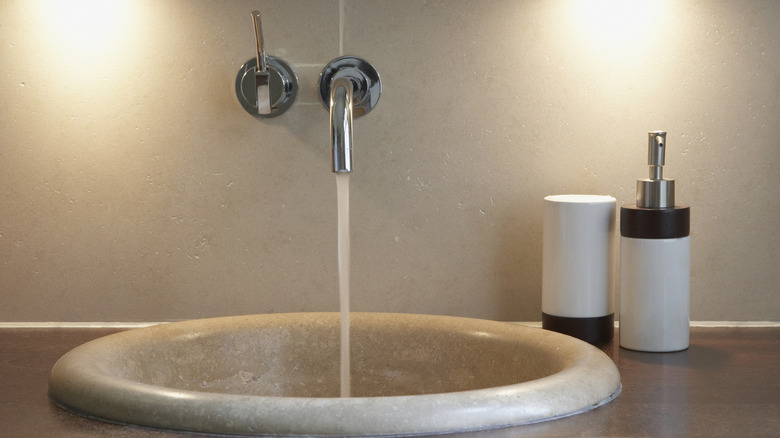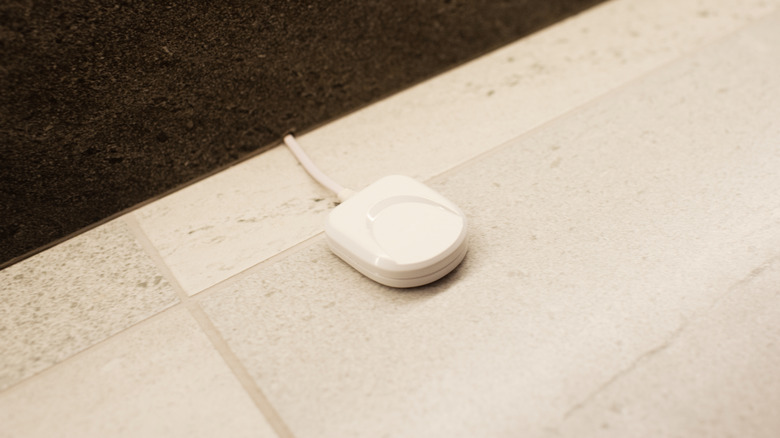Renovation 911's Kirsten Meehan And Lindsey Uselding's Flood Prevention Tips Can Save Your Home
A broken water pipe, a hot water tank that's leaking, or a kitchen faucet that's left running can all create unexpected flooding in a home. Many floods are dangerous, creating unsafe conditions for property owners, especially as they worsen and sit, creating a risk for mold damage. They are also costly to fix. Accidents happen, and sometimes there is no way to avoid this risk. Yet, there are a few simple things you may be able to do to prevent flooding from leading to a full-blown disaster or at least protect from large-scale basement flooding.
Kirsten Meehan and Lindsey Uselding of HGTV's "Renovation 911" helped a family that suffered significant flooding brought on by a faucet that was left running. The damage was severe, leading to the need to clean up and repair the kitchen and basement. Though it was an accident and there was no way to avoid it, the team offered some guidance to homeowners on a few simple ways to prevent flooding or the extensiveness of this type of damage in the home. Here's what you can learn from this episode's flood disaster recovery.
Avoid leaving water running
It seems like such an obvious and simple thing to do, but it is more common than you think to leave home or step away from a running faucet, allowing the water to flow. Perhaps you planned to take a bath, turned on the tub, and then the phone rang, and you got distracted. You may have been filling a sink to allow something to soak and stepped away from doing so because you knew it would take a few minutes for the sink to fill. Don't forget the risks outside, either. Turning on the hose and sprinkler to water the garden, forgetting about it, and leaving for a few hours, could lead to exterior flooding that makes its way into the home.
While this is an accident that's hard to avoid, try to create a rule for yourself to avoid leaving an area while water is running. Be cognizant that whenever you turn the water on, you should be there to manage it. Also, pay attention to bigger problems. If you know the toilet is constantly running, turn off the water going to it to prevent flooding. If you spot a leak from the water heater, contact a plumber to troubleshoot over the phone and turn off the water at the valve.
Consider a whole-home monitoring system
Meehan and Uselding also suggest the use of a whole-home water monitoring system. It links to your home's water intake lines, monitoring the flow into your home. When it notices that there's a constant flow that doesn't turn off within a few minutes, potentially indicating a flood, the system alerts you through a message or sound. You can then figure out what's going on and prevent a bigger risk from occurring. Some systems can monitor the whole home for leaks as well.
Also, consider the value of a smart home flood sensor or water leak detector. These are types of smart home technology that monitor for wet surfaces, spotting, for example, water on the floor of your basement. They send your smartphone a message alerting you of the problem so you can take quick action. It's a lot easier to clean up a bit of water with a mop than having to worry about drywall replacement and mold remediation.


